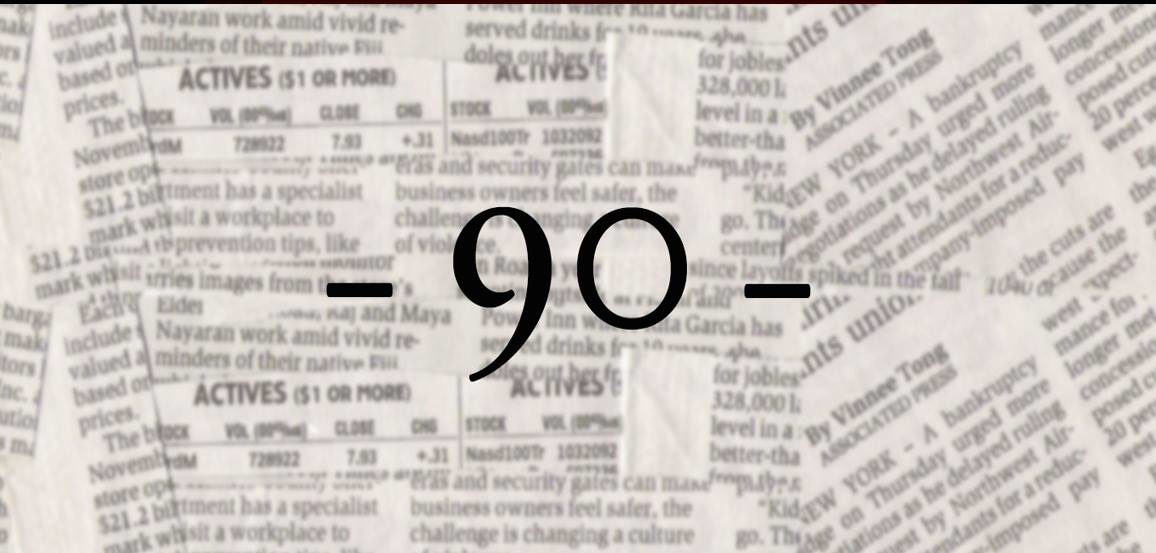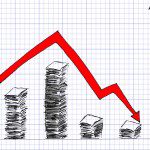Op-ed: Dear Canadian journalists
It's time to take action

Image by Allison Baker.
Dear Canadian journalists,
It’s time we have a serious talk. Yes, you are in trouble.
It’s not you, it’s the Paul Godfreys of the world. They have pushed a noble profession closer and closer to falling into a black void of unemployment and no value, the Mount Doom for our seemingly cursed pens (or keyboards, if you want to be accurate). One overpaid CEO to rule them all. One overpaid CEO to save them. One overpaid CEO to take them all out and in the darkness fire them.
At some point, the epic saga about the survival of journalism became overburdened by the weight of our empty wallets. We stopped fighting back, or, at least, we became complacent in accepting the ruling iron fist of money. We mourn our lost brothers and sisters in arms. We write about it, we rant about it, we scream it from the depths of the Twitterverse. We just haven’t done anything about it.
Journalism is not dead, because news can never die. It has been shared long before ill-fated financial aims merged with the informative superpowers of the newsroom. We’ve forgotten that we still hold the pens (I mean, keyboards), and with that we can figure out a way to survive, and thrive.
We can only do that if there’s belief and hope–idealistic terms for the most part, but a lot has been built and done on these two abstract concepts. We’ve spent over a decade trying to retain these ideals, desperately navigating the murky waters to try and figure out why journalism is in trouble, what led it there and what to do to fix it.
I’m writing this from a journalism school among future journalists who believe that there is something invaluable journalism has to offer–stories, information, truth, analysis, depth, understanding. We wouldn’t be paying thousands of dollars of tuition (and student debt) if we didn’t believe that.
Over the past year, every class has started with a professor emphasizing the changing landscape of journalism. This isn’t done as a negative portrayal of the profession, but as a reality we need to accept and learn to navigate. It’s certainly a bleak reality, but, as a friend and fellow journalism student pointed out yesterday, “All industries shift and downsize and change and sometimes grow.” Where there are ups, there are also downs; fluctuations, after all, are a natural economic occurrence, one the journalism industry is not immune to.
There is a future of journalism. More importantly, there is a present of journalism. Instead of crying wolf on the death of our professional identities, let’s figure out a way to rebuild. It’s time to stop talking about our woes, buy some bandages and a pair of crutches, and fight harder to tell the news.
With the warmest of regards,
by Fatima Syed
Fatima Syed is the blog editor of the spring 2016 issue of the Ryerson Review of Journalism.















































Thanks for this. Precisely what I tell my students at UTSC. Our purpose and service to journalism and democracy will continue long after Paul Godfrey has retired. Cheers.
If this argument is what teachers like Jeffrey Dvorkin teach J-school students, no wonder the industry is in such bad shape. Don’t any of them learn to write business news? If they did, they might think critically about how the Internet ate the lunch of print newspapers, which then compounded the problem by utterly botching the job of re-engineering their business model for online. Paul Godfrey is a symptom. The disease is news management’s failure to come with new sources of revenue to support their operations.
Cheering maudlin muck comforts the victims, I suppose, but does nothing to illuminate the real problem, let alone propose a solution.
Respectfully Mr. Hislop, I am not a journalist or journalism student, but in spite of this, I think I understand at least a couple of the dynamics involved.
The Internet did not destroy network TV, VCR’s did not stop movie theatres from being successful. Print journalism is in trouble primarily because ownership has condensed to a handful of people who don’t care about truth and investigative reporting. In fact, they care about the opposite. By controlling what journalists are allowed to look into and what they are allowed to write about, small-c Conservative paper owners are attempting to control the mindset of the public at large, and sway opinion to their way of thinking.
Right wing paper owners team with right wing governments to further monetary interest, not the truth. It’s about mining, and heavy industry, and disdain for scientific “worry-warts” and not about discovering and reporting the truth.
Bastions of good journalism are drying up, and the reading public has achieved a high level of scepticism for how truthful their news is. Even the so-called “factual” reports are not reliable, not because the facts are wrong, but are presented in a way to tell only half the story – not the whole, balanced one. Ask the CBC – what should be a neutral and unbiased editorial news reporter – if it feels any government interference on how or what they reported on during the Harper error … I mean Harper era.
As a result of this trend, protesters become painted as evil criminals, and the logging or mining companies – that only want to provide jobs and bring sunshine and light – are victims of the criminals – as an example.
Every day, sometimes more than once, a journalist is killed, imprisoned or fired from their job for doing nothing more than telling the truth. Meanwhile, corporations, governments and billionaires continue to lie, distort, and shape public opinion and government policy completely unscathed and unopposed.
Does that describe a direction you want the world to continue to be going in?
What’s that -90- all about?
Shouldn’t it be -30- ?